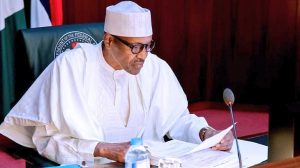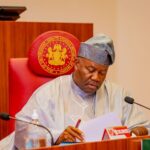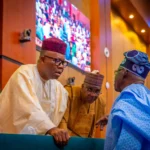The long-held belief in Nigerian society that our hard-working but hard-pressed teachers will only get their reward in heaven was hopefully upturned last week when President Muhammadu Buhari approved a mouth-watering package for teachers. The package was announced on Monday last week during the celebration of World Teachers’ Day 2020.
Education Minister Adamu Adamu, who represented Buhari at the occasion, said the package includes a special salary scale for basic and secondary school teachers as well as rural posting allowance, science teachers allowance and peculiar allowance. Teachers’ retirement age was reviewed upwards to 65 years instead of 60 in the civil service and 40 years of service before compulsory retirement was approved instead of 35. Buhari also approved a special pension scheme “to enable the teaching profession to retain its experience and talents.”
Other goodies contained in the package include building of low-cost houses for teachers in rural areas, prompt payment of salaries and timely promotion to eliminate stagnation. A Teachers’ Conversion Programme (TCP) and ICT training program were also approved. In addition, the package includes bursary award to education students in universities and colleges of education with the assurance of automatic employment upon graduation. Tertiary Education Fund (TETFUND) will now fund teaching practice in Universities and Colleges of Education, according to the new package.
Nigeria Union of Teachers [NUT] warmly welcomed the package and said it granted many of its long-standing demands for enhancing the welfare on teachers and retaining the best in the teaching system. Most citizens who heard it also heaved a sigh of relief because at long last, we are about to make ends with respect to one of the biggest anomalies in the Nigerian socio-economy, namely maltreating the very people who are responsible for training the nation’s future leaders.
Yet, many questions immediately sprang up from the Federal announcement. To begin with, Federal Government owns only 108 secondary schools and almost no primary schools. Most basic and secondary school teachers are employed by state and local governments, which are already hard-pressed paying even their current wage bills. Buhari directed the Education Minister to liaise with “state and local governments, Head of Civil Service of the Federation, National Salaries, Incomes and Wages Commission and other relevant agencies” in order to uniformly adopt the package. This could take years, if at all it happens.
In addition, the National Assembly must pass a law to back it up for nationwide application. Even that is not certain because some states have not implemented the new Minimum Wage Act. This consultation should have been done before this package was announced. Tens of thousands of private school teachers are obviously not included in this package, even though they are now a very important part of the teaching force. Aspects of the promise such as prompt salary payment and building rural houses for teachers would require a national reordering of priorities by all tiers of government. The president must lead the way to enshrine this new order.
Welcome though the new package is, it should only apply to teachers with the professional qualification. Many states employ teachers that do not have the minimum NCE teaching qualification. Such people should not be rewarded with the new package until they acquire the qualification. The 65 years age and 45 years in service package should also apply only to qualified teachers. Hopefully it will serve as a stimulus for unqualified teachers to wake up and work hard to acquire relevant teaching qualifications.
Many teachers are already expressing worries that this package could take its place on the shelves alongside many other unfulfilled government promises. It will require years of strenuous work and very able national leadership to be able to deliver on it. If President Buhari succeeds in actualizing this promise, he would have created a lasting legacy and would have corrected one of the biggest anomalies in Nigerian society. Otherwise, it could rank as one of the biggest dashed hopes in our national history.

 Join Daily Trust WhatsApp Community For Quick Access To News and Happenings Around You.
Join Daily Trust WhatsApp Community For Quick Access To News and Happenings Around You.


